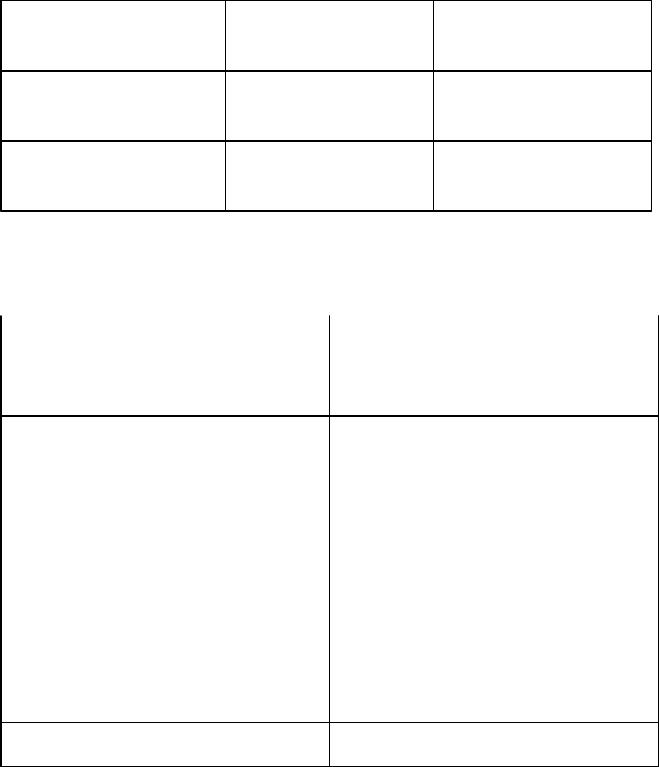
- •The Present Indefinite Tense (Active)
- •The Past Indefinite Tense (Active)
- •The Future Indefinite Tense (Active)
- •Відмінювання дієслова to be (Indefinite Tenses Active)
- •Конструкція there + to be в Indefinite Active
- •Відмінювання дієслова to have (Indefinite Tenses Active)
- •Вправи на всі вивчені часи
- •Multi-function devices and Device Containers
- •Hеособові форми дієслова
- •(Non-Finite Forms of the Verb)
- •Суб’єктний дієприкметниковий комплекс
- •Незалежний дієприкметниковий комплекс
- •(The Absolute Participle Complex)
- •Умовні речення трьох типів (Conditional sentences of three types)
- •Речення з As if (As if – sentences)
- •Wish-sentences
- •Речення з If only (IF ONLY-sentences)
- •Переклад кластерів (Translation of the clusters)
- •Словотворення (Word building)

Дієслово (The Verb)
Неозначені часи дієслова (Indefinite Tenses)
The Present Indefinite Tense (Active)
Стверджувальна форма |
I (we, you, they) |
work |
|
He (she, it) |
works |
Заперечна форма |
I (we, you, they) do not |
work |
|
He (she, it) does not |
work |
Питальна форма |
Do you (I, we, they) |
work? |
|
Does he (she, it) |
work? |
Вживання Present Indefinite Tense
1. Вживається |
для |
вираження |
I go to the university every day. |
постійної, звичайної дії або дії, що |
Copper conducts electricity better than |
||
властива особі |
чи |
предмету, який |
|
позначає підмет. |
|
|
other metals. |
|
|
|
|
2.Вживається для вираження дії, яка I don’t understand this equation.
відбувається в момент мовлення з
дієсловами, що не вживаються у I see your classmates in the street now. формі Continuous: to see, to know,
to hear, to feel, to like, to hate, to love, to understand, to recognize, to want та ін.
3. |
Вживається |
для |
вираження |
We shall send you the documents as soon |
|
|
майбутньої дії в підрядних реченнях |
as we receive them from London. |
|||
|
умови й часу, які вводяться |
If you come, I shall give you this book. |
|||
|
сполучниками when, after, till, until, |
||||
|
before, as soon as, as long as, if, |
|
|
||
|
provided та ін. |
|
|
|
|
|
|
|
|
|
|
4. |
Вживається |
для |
вираження |
I leave Kyiv tomorrow. – Завтра я |
|
|
майбутньої дії |
з дієсловами, що |
|
|
|
3

означають рух (to go, to come, to leave, to return, to arrive, to start, to sail та ін.), коли йдеться про розклад руху транспорту, режим роботи магазинів, виставок, музеїв і т.д. та особисті плани згідно з чітким розкладом або режимом роботи.
З Present Indefinite часто вживаються:
виїжджаю (тепер. час) з Києва.
The steamer sails tomorrow. – Пароплав
відпливає (тепер. час) завтра.
а) прислівники неозначеного часу (usually, often, seldom, always, generally, sometimes та ін.), які ставляться перед смисловими дієсловами;
б) словосполучення, такі як every day, every evening, every morning, які звичайно ставляться в кінці речення.
Exercise 1. Put the following into the plural.
Model: My brother works at a factory. – My brothers work at a factory.
1. The worker comes home at six. 2. He knows all about engines. 3. The engineer goes to the plant. 4. This apparatus features extraordinary stability. 5. This example illustrates the latest achievement in light industry. 6. The student listens to the lecture on the strength of materials every week. 7. My friend comes to the University at nine o’clock. 8. The teacher hangs tables and diagrams before a lecture.
Exercise 2. Make the following sentences interrogative and negative. Translate them into Ukrainian.
1. I often meet this engineer here. 2. The machine works well. 3. The technicians work on the first floor. 4. Mr. Black always draws on a drawing board. 5. These young men and women study at an English technical college. 6. The students go to the university by metro. 7. He delivers lectures three times a week. 8. He always begins his lectures in time.
Exercise 3. Fill in the blanks with the correct form of the verb (to boil, to deliver, to come, to try, to make, to work, to begin, to measure, to store, to receive) in the Present Simple Tense.
1. The students … gas pressure at the laboratory. 2. Water … at 100 degrees Celsius. 3. Our lectures … at 8 o’clock in the morning. 4. Some laboratory assistants … here between 3 and 4 o’clock. 5. Mr. Hall … lectures to the students of our
4

university. 6. The students always … to make experiments with their own hands. 7. He always … to his work in time. 8. Sometimes they … experiments with the help of their professor’s assistants. 9. A computer … information which it … .
Exercise 4. Translate into English.
1. Де працює цей інженер? – Він працює на заводі. 2. Будь-який комп’ютер складається з трьох частин: центрального процесора, пристроїв вводу-виводу та блоку пам’яті. 3. Мікрофон перетворює мову на її безпосередній електричний аналог. 4. Радіоприймач працює добре. 5. Розвиток науки і техніки полегшує (to make easier) нашу працю. 6. Весь світ добре знає імена наших вчених. 7. Де аспіранти (postgraduate (student)) проводять експериментальну роботу? – Усі дослідження аспіранти проводять в лабораторіях університету. 8. Хто допомагає студентам в їх роботі?
|
|
|
|
The Past Indefinite Tense (Active) |
|
||||
|
|
|
|
|
|
|
|
|
|
|
|
|
|
|
|
|
|
Правильні |
Неправильні |
|
|
|
|
|
|
|
|
дієслова |
дієслова |
|
|
|
|
|
|
|
|||
|
Стверджувальна |
|
I (he, she, it, we, |
|
worked |
went |
|||
|
форма |
|
|
you, they) |
|
|
|
|
|
|
|
|
|
|
|
|
|||
|
Заперечна форма |
|
I (he, she, it, we, |
|
work |
go |
|||
|
|
|
|
you, they) did not |
|
|
|
|
|
|
|
|
|
|
|
|
|||
|
Питальна форма |
|
Did I (he, she, it, |
|
work? |
go? |
|||
|
|
|
|
we, you, they) |
|
|
|
|
|
|
|
|
|
|
|
|
|
||
|
|
|
|
Вживання Past Indefinite Tense |
|
||||
|
|
|
|
|
|
|
|||
|
1. Вживається |
|
|
для |
вираження |
These young men graduated from the |
|||
|
одноразової |
або |
постійної дії |
в |
university last year. |
|
|||
|
минулому. |
Час |
минулої |
дії |
My friend worked at a plant. |
||||
|
уточнюється |
такими |
словами, |
як |
|||||
|
yesterday, the day before yesterday, |
|
|
||||||
|
last week, last year, last summer, last |
|
|
||||||
|
winter, the other day (недавно, цими |
|
|
||||||
|
днями), an hour |
ago, |
|
on |
|
|
|||
5

Monday, in 1917, during the war та ін.
2. |
Вживається |
для вираження ряду |
The students opened the books, found |
|
|
послідовних дій у минулому. |
the exercise and began doing it. |
||
3. |
Вживається |
для |
вираження |
Last winter I spent a lot of time in the |
|
повторюваної дії в минулому. |
library. |
||
Exercise 1. Put the following sentences into the Past Indefinite.
1. His father works at a plant. 2. We understand the rule. 3. This worker repairs his car himself. 4. We study at the Kyiv National University of Technologies and Design. 5. These findings represent a direct demonstration of the applicability of this method. 6. This does not present a problem. 7. This student lives in a hostel. 8. My friend studies at the department of Mechatronics and Computer Technologies. I study at the same department. We do research.
Exercise 2. Make the following sentences interrogative and negative. Translate them into Ukrainian.
1. In Paris she learned her first lessons in science. 2. Bill asked me to do this work. 3. His research resulted in a new mechanism of the process. 4. They made the experiment last year. 5. It took us two hours to complete the experiment. 6. This hypothesis lacked confirmation. 7. It took mathematicians a long time to realize that not all continuous functions have a derivative. 8. The change in velocity resulted from the force acting from outside.
Exercise 3. Put questions to the italicized words.
1. They started work at nine o’clock this morning. 2. We discussed various problems at the seminar. 3. They did many operations on the computer. 4. Yesterday we went to the University library. 5. At the end of the nineteenth century scientists discovered most of the chemical elements. 6. The word atom came from the Greek word “indivisible”. 7. He called when I was at the University.
Exercise 4. Replace the infinitives in brackets by the Present Indefinite or the Past Indefinite.
6
